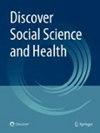大流行洞察:COVID-19对传统四舍五入结构的启示
引用次数: 0
摘要
由于社会距离政策以及对患者和提供者安全的担忧,在新冠肺炎大流行初期,许多医疗机构暂时转向各种非传统的四舍五入模式。工作流程的突然和前所未有的变化使人们能够重新评估医学教育中传统舍入结构的原因,并与大流行期间出于必要而制定的舍入新战略进行比较。在这篇展望文章中,我们研究了大流行产生的舍入模型的积极和消极方面,并提出了可以推进的方面,以及未来的研究方向。本文章由计算机程序翻译,如有差异,请以英文原文为准。
Pandemic insights: what COVID-19 has revealed about traditional rounding structure
Abstract Due to social distancing policies and concerns over patient and provider safety, early in the COVID-19 pandemic many healthcare institutions temporarily converted to various, non-traditional rounding models. The abrupt and unprecedented change in workflow has enabled re-assessment of the reasons for the traditional rounding structures in medical education and comparison to newer strategies for rounding which have developed out of necessity during the pandemic. In this Perspectives article, we examine the positive and negative aspects of rounding models borne out of the pandemic and suggest aspects which may be carried forward, as well as future directions for research.
求助全文
通过发布文献求助,成功后即可免费获取论文全文。
去求助
来源期刊

Discover Social Science and Health
intersection of health and social sciences-
CiteScore
0.60
自引率
0.00%
发文量
21
审稿时长
22 days
期刊介绍:
Discover Social Science and Health is an interdisciplinary, international journal that publishes papers at the intersection of the social and biomedical sciences. Papers should integrate, in both theory and measures, a social perspective (reflecting anthropology, criminology, economics, epidemiology, policy, sociology, etc) and a concern for health (mental and physical). Health, broadly construed, includes biological and other indicators of overall health, symptoms, diseases, diagnoses, treatments, treatment adherence, and related concerns. Drawing on diverse, sound methodologies, submissions may include reports of new empirical findings (including important null findings) and replications, reviews and perspectives that construe prior research and discuss future research agendas, methodological research (including the evaluation of measures, samples, and modeling strategies), and short or long commentaries on topics of wide interest. All submissions should include statements of significance with respect to health and future research. Discover Social Science and Health is an Open Access journal that supports the pre-registration of studies.
Topics
Papers suitable for Discover Social Science and Health will include both social and biomedical theory and data. Illustrative examples of themes include race/ethnicity, sex/gender, socioeconomic, geographic, and other social disparities in health; migration and health; spatial distribution of risk factors and access to healthcare; health and social relationships; interactional processes in healthcare, treatments, and outcomes; life course patterns of health and treatment regimens; cross-national patterns in health and health policies; characteristics of communities and neighborhoods and health; social networks and treatment adherence; stigma and disease progression; methodological studies including psychometric properties of measures frequently used in health research; and commentary and analysis of key concepts, theories, and methods in studies of social science and biomedicine. The journal welcomes submissions that draw on biomarkers of health, genetically-informed and neuroimaging data, psychophysiological measures, and other forms of data that describe physical and mental health, access to health care, treatment, and related constructs.
 求助内容:
求助内容: 应助结果提醒方式:
应助结果提醒方式:


